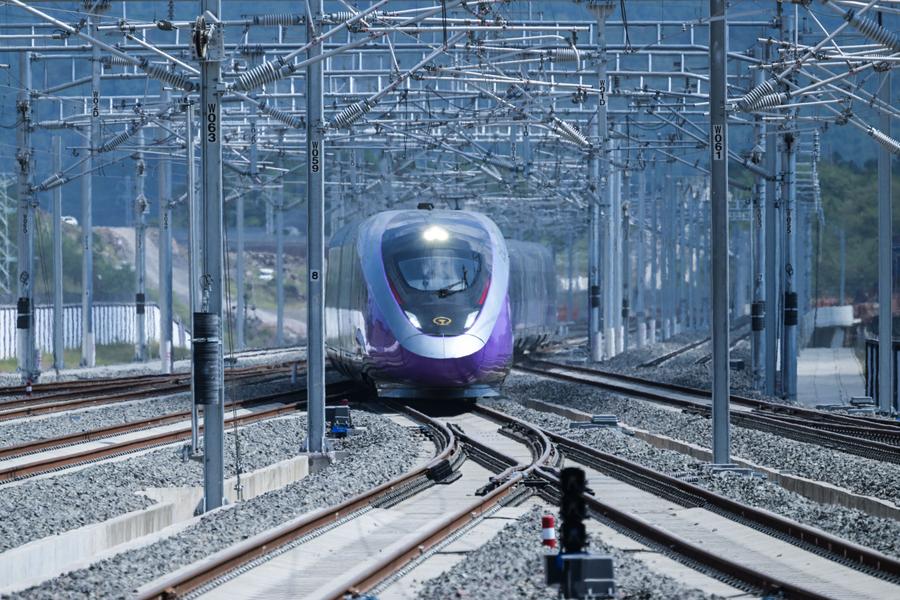A bullet train pulls into Yiwu Railway Station of the Hangzhou-Wenzhou high-speed railway in Yiwu, east China's Zhejiang Province, Sept. 6, 2024. (Photo by Lyu Bin/Xinhua) BEIJING, Oct.
7 (Xinhua) -- As a Chinese saying goes, if you want to get rich, build roads first. Since the founding of the People's Republic of China, the country has been committed to building a robust transport network, connecting remote villages with bustling metropolises and facilitating the smooth flows of people and goods. In its latest efforts to boost regional connectivity, China put into operation two sections of railway in the Guangdong-Hong Kong-Macao Greater Bay Area in May, marking the opening of the longest intercity railway route in the area.
The 258-kilometer-long line, linking cities like Huizhou, Dongguan, Guangzhou, Foshan and Zhaoqing, underscores China's dedication to enhancing transport across its vast expanse. From underdeveloped infrastructures to a sprawling network, China's transport sector has now evolved into a multi-faceted and integrated system over the past 75 years, featuring high domestic and international connectivity. STRETCH AFAR China's railways set a new record in daily railway passenger trips, with over 21 million passenger trips handled on Tuesday, the first day of the weeklong National Day holiday, highlighting the country's impressive capacity and reliability.
Roads remain the most popular mode of transportation in China, and the country's road network has witnesse.


















